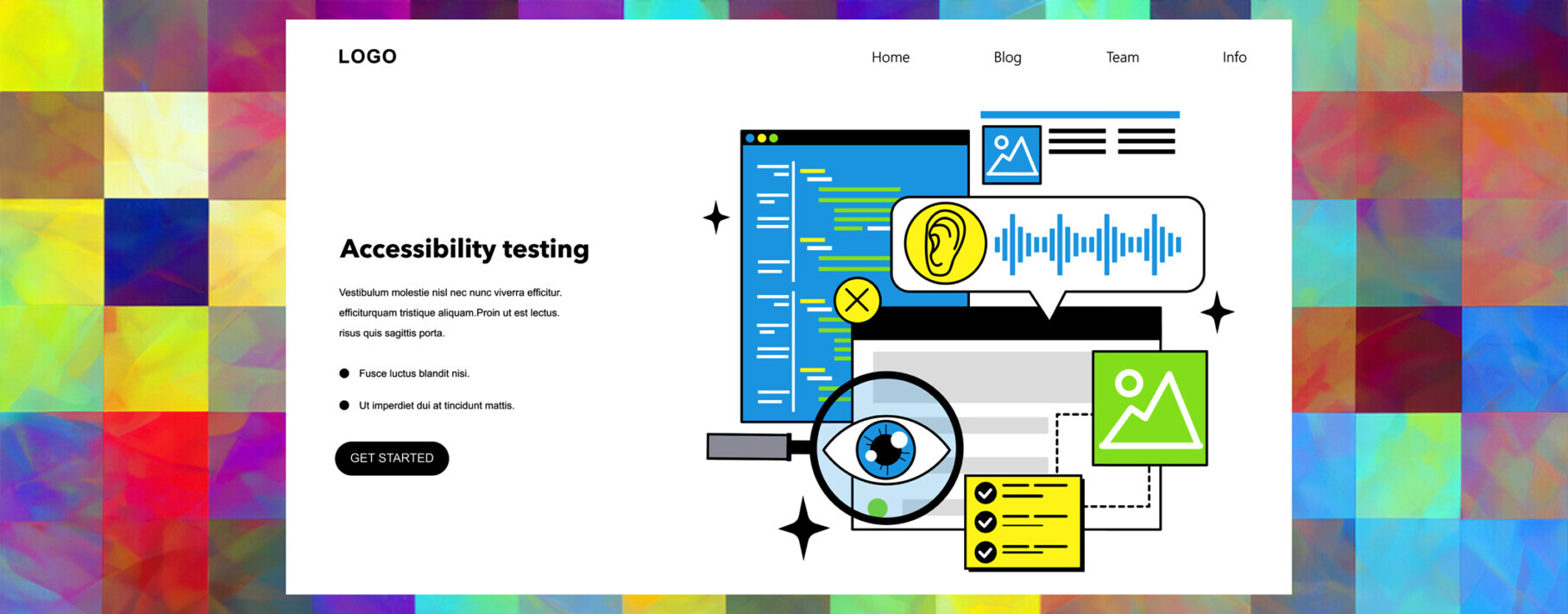Website Design
Making the Web Accessible for All: Understanding Colorado’s HB21-1110

In an era where the internet serves as the primary medium for communication, information, and services, ensuring web accessibility for everyone is not just a courtesy—it’s a necessity.
Colorado has taken a significant step towards this inclusivity with the introduction of HB21-1110, a pioneering piece of legislation aimed at enhancing web accessibility standards across state and local government websites. This legislation underscores the importance of digital accessibility, ensuring that everyone has equal access to online resources and services.
The Essence of HB21-1110
At its core, HB21-1110, also known as the “Digital Communications Accessibility Law,” mandates state and local government entities in Colorado to make their websites and digital services accessible to people with disabilities. Important dates associated with this law include its passage in July 2021 and a critical implementation milestone in July 2024, when individuals will gain the right to bring discrimination lawsuits in state courts, in addition to existing federal avenues under the Americans with Disabilities Act (ADA).
Who Does HB21-1110 Apply To?
The law is specifically designed to cover all state and local government agencies within Colorado. These entities are now tasked with ensuring their digital communications, including websites, mobile applications, and other online services, are accessible to individuals with disabilities, adhering to recognized standards for digital accessibility.
Federal vs. State: A Layered Approach to Accessibility
While state and local agencies have been under the purview of federal accessibility standards outlined by the ADA, the introduction of HB21-1110 into state law provides a significant advantage. Starting in July 2024, individuals with disabilities will not only have federal recourse but will also be able to initiate discrimination lawsuits at the state level. This dual avenue for addressing accessibility grievances not only highlights the importance of web accessibility but also offers a more robust mechanism for enforcement and compliance.
The Importance of Compliance
The passage of HB21-1110 represents a clear message from Colorado to organizations of all types and sizes: web accessibility cannot be overlooked. In an increasingly digital world, ensuring that websites and online services are accessible to everyone, including those with disabilities, is a fundamental aspect of inclusivity and equal opportunity. Failure to adhere to HB21-1110’s requirements can have significant implications for state and local government agencies, including potential legal action. Non-compliance not only risks legal and financial repercussions but also damages an organization’s reputation by demonstrating a lack of commitment to inclusivity and accessibility for all individuals.
To align your site with Colorado’s HB21-1110 for web accessibility:
- Website Audit: Use tools to check your site’s current accessibility level and identify areas for improvement.
- Learn and Educate on WCAG: Understand the Web Content Accessibility Guidelines (WCAG) and brief your team on their importance and the need for compliance.
- Make Changes and Keep Updating: Start fixing identified issues and keep your site’s accessibility updated over time.
Partnering with HyFyve: Your Path to Compliance
Recognizing the importance of this legislation and the challenges organizations might face in achieving compliance, HyFyve stands ready to assist. Our mission-driven branding and marketing agency specializes in creating inclusive, accessible digital experiences. We understand the nuances of web accessibility standards and are committed to helping organizations not only meet legal requirements but also embrace the spirit of inclusivity that underpins these laws. This commitment to accessibility not only aligns with legal obligations but also demonstrates a profound dedication to inclusivity, reflecting positively on your brand’s values and ethos.
Conclusion: A Call to Action for Inclusivity
Colorado’s HB21-1110 is more than just legislation; it’s a call to action for all organizations to prioritize web accessibility. As we move towards July 2024, when the law’s provisions allow for state-level discrimination lawsuits, it’s crucial for state and local agencies, as well as private organizations, to assess and enhance the accessibility of their digital footprints.
Inclusivity in the digital realm is not optional—it’s essential. As a society, our move towards greater digital dependence necessitates a parallel commitment to ensuring that everyone can access and benefit from digital content and services. Seek out a partner to guide and support your organization, ensuring that together, we can create a more accessible, inclusive digital world.
In embracing HB21-1110, we’re not just complying with regulations; we’re opening our digital doors to everyone, reinforcing the idea that the web should be a place of equal access and opportunity. Let’s work together to make this vision a reality.


